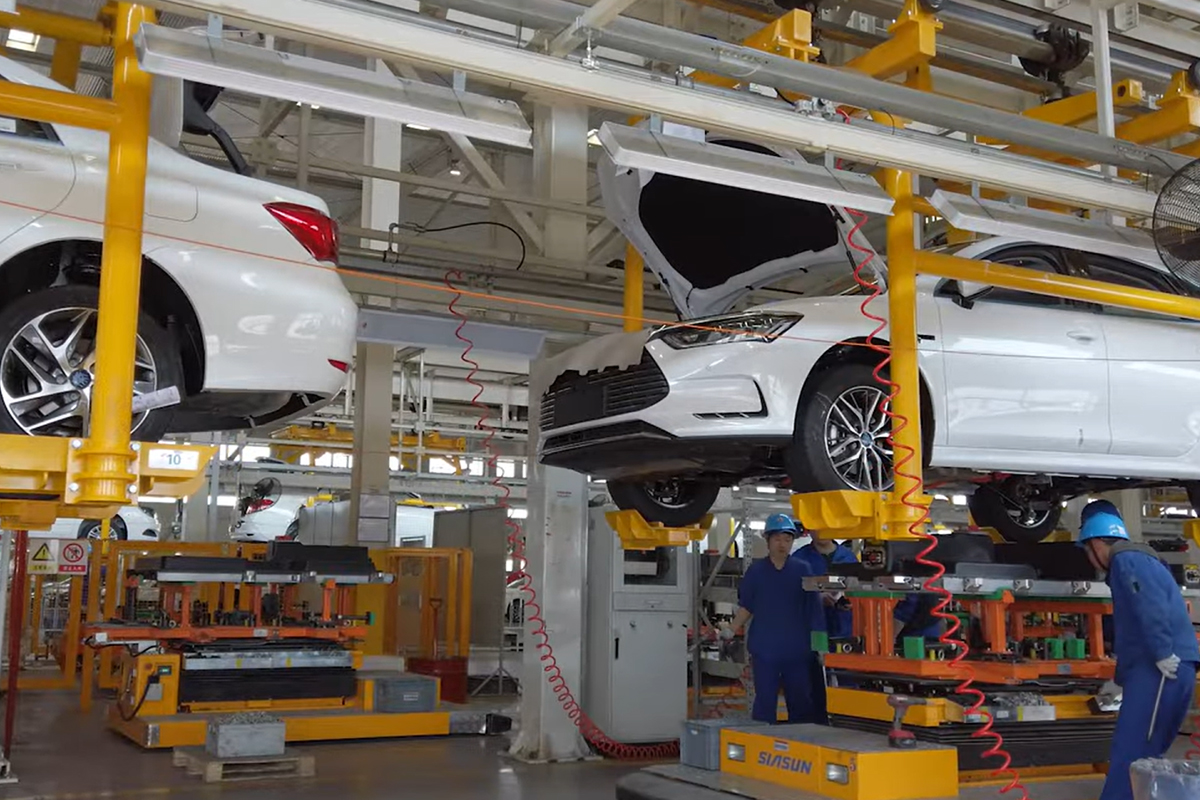Amid China’s struggles with excess manufacturing of various products, workers at a domestic auto plant are confronted with a tough decision regarding their employment.
According to a Tuesday interview with Nikkei, Lisa, a factory worker at the Li Auto Factory and a newlywed bride, stated that over 1,000 employees, including herself, were presented with the option to either resign or accept minimum wage until business conditions pick up.
The 27-year-old worker further noted: “We were told that our pure electric vehicle sales are weak due to the bad conditions, so the company has to cut production.” Speaking on the condition of anonymity, Lisa said if she fails to find another job, she will be “starving to death.”
In a report last month, local media indicated that Li Auto planned to reduce its workforce by 18 percent. Li Auto’s financial results revealed that the Chinese electric vehicle (EV) manufacturer delivered 80,400 cars in the first quarter – a 53 percent increase year-over-year but a 39 percent decrease compared to the prior quarter of 2023.
In comparison, Tesla’s first-quarter deliveries reached 386,810 vehicles, reflecting an 8.5 percent decline year-over-year and a 20 percent decrease from the previous quarter. In April, shares in Tesla surged after news that the company would be releasing a more affordable EV earlier than anticipated despite a substantial drop in quarterly profits.
Li Auto’s financial performance mirrors the trajectory of China’s electric vehicle industry. Automakers rapidly expanded production, but consumer demand has lagged. On top of that, domestic consumers are grappling with a real estate crisis and a volatile stock market.
Western Concerns vs. China’s Balancing Act
Some Chinese automakers are setting their sights on foreign shores, hoping to find more significant markets. Much to their chagrin, these efforts encounter resistance from governments aiming to shield their car manufacturers.
In January, Tesla’s CEO expressed concern that trade barriers might be necessary to shield American automakers from the competitive threat of Chinese giants. Following suit, the White House announced a 100 percent tariff on electric vehicles imported from China last month.
According to Nikkei, Yao Xiaodong, an official with a Chinese electric vehicle group, recently stated that manufacturers face a stark choice: “Either go overseas or go bust.” Chinese leaders have publicly dismissed the West’s concerns about overproduction, characterising them as election-year posturing.
Western investors and politicians have long worried about China’s manufacturing practices, arguing that government subsidies create a triple-edged sword: cheaper goods for consumers, overcapacity leading to excessive manufactured goods, and market distortion favouring Chinese companies over those driven by pure efficiency and innovation.
Despite concerns about Chinese manufacturing practices, many consumers are drawn to China-made products because they offer significantly lower prices for a wide range of goods, often replicating established brands at a fraction of the cost. This affordability allows for a greater variety of purchases and can be a major factor for budget-conscious consumers, particularly in developing countries, according to the International Monetary Fund (IMF).
“China is now simply too large for the rest of the world to absorb this enormous capacity,” US Treasury Secretary Janet Yellen said at a press conference in April. So, China primarily focuses on domestic issues arising from practices like factory underutilisation and unprofitable companies.
This doesn’t come as a surprise given that factory underutilisation or closures, like Lisa’s, could trigger a devastating domino effect for regional governments in China, leading to strained finances, disrupted supply chains and other workforce woes.







